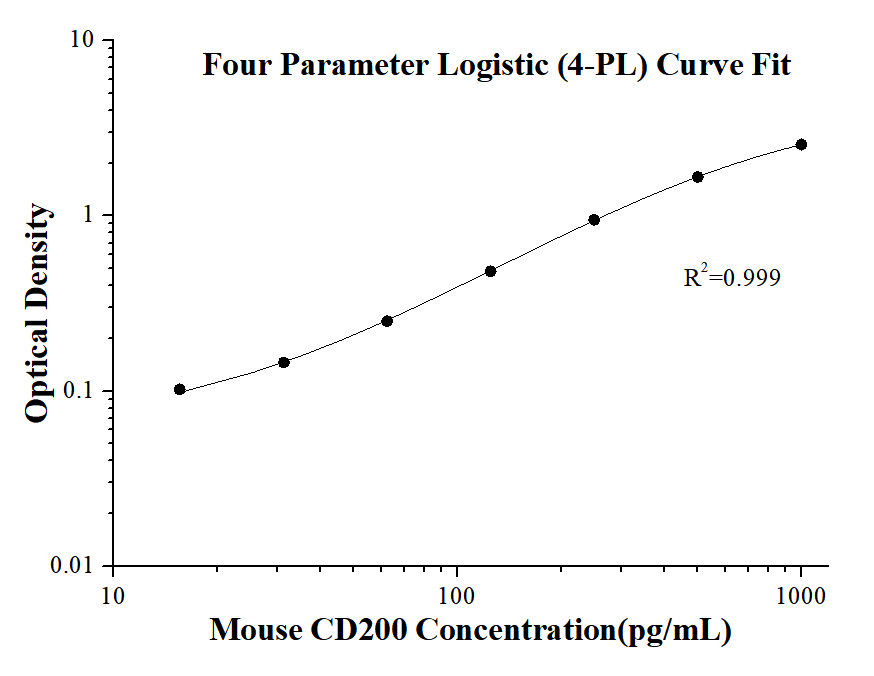Mouse CD200 ELISA Kit
Cat no : KE10125
Synonyms
Cd200,CD200 antigen,Mox2,OX2
Validation Data Gallery
Product Information
KE10125 is a solid phase sandwich Enzyme Linked-Immuno-Sorbent Assay (Sandwich ELISA). The mouse CD200 ELISA kit is to be used to detect and quantify protein levels of endogenous mouse CD200. The assay recognizes mouse CD200. An antibody specific for mouse CD200 has been pre-coated onto the microwells. The mouse CD200 protein in samples is captured by the coated antibody after incubation. Following extensive washing, another horseradish peroxidase (HRP)-conjugated antibody specific for mouse CD200 is added to detect the captured mouse CD200 protein. For signal development, followed by Tetramethyl-benzidine (TMB) reagent. Solution containing sulfuric acid is used to stop color development and the color intensity which is proportional to the quantity of bound protein is measurable at 450 nm with the correction wavelength set at 630 nm.
| Product name | Mouse CD200 ELISA Kit |
| Tests | 1 X 96 well plate |
| Sample type | Serum, Plasma |
| Assay type | Sandwich |
| Sensitivity | 0.1 pg/mL |
| Range | 15.6-1000 pg/mL |
| Reactivity | Mouse |
| Tested applications | Sandwich ELISA |
| Gene ID (NCBI) | 17470 |
Recovery
| Sample Type | Average | Range |
|---|---|---|
| Mouse serum | 101% | 89%-113% |
IntraAssay
| Sample | n | mean ( pg/mL) | SD | CV% |
|---|---|---|---|---|
| 1 | 20 | 775.6 | 55.2 | 7.1 |
| 2 | 20 | 148.9 | 8.7 | 5.8 |
| 3 | 20 | 46.2 | 3.2 | 6.9 |
InterAssay
| Sample | n | mean ( pg/mL) | SD | CV% |
|---|---|---|---|---|
| 1 | 24 | 785.9 | 74.7 | 9.5 |
| 2 | 24 | 233.0 | 6.2 | 2.6 |
| 3 | 24 | 97.3 | 5.4 | 5.5 |
Background Information
CD200, also known as OX2, is a type I transmembrane glycoprotein that belongs to the immunoglobulin superfamily. It contains two extracellular immunoglobulin domains, a transmembrane and a cytoplasmic domain. CD200 is expressed on a variety of cell types, including thymocytes, B lymphocytes, a subset of T lymphocytes, follicular dendritic cells, neurons, and endothelial cells. CD200 binds to its receptor, CD200R, which is primarily expressed by myeloid and T cell lineage. The CD200-CD200R interaction plays a role in immunosuppression and suppression of anti-tumor immune responses.
Properties
| Storage Instructions | All the reagents are stored at 2-8℃ for 6 months or -20℃ for 12 months. Refer to the protocol for further storage instructions. |
| Synonyms | Cd200,CD200 antigen,Mox2,OX2 |
